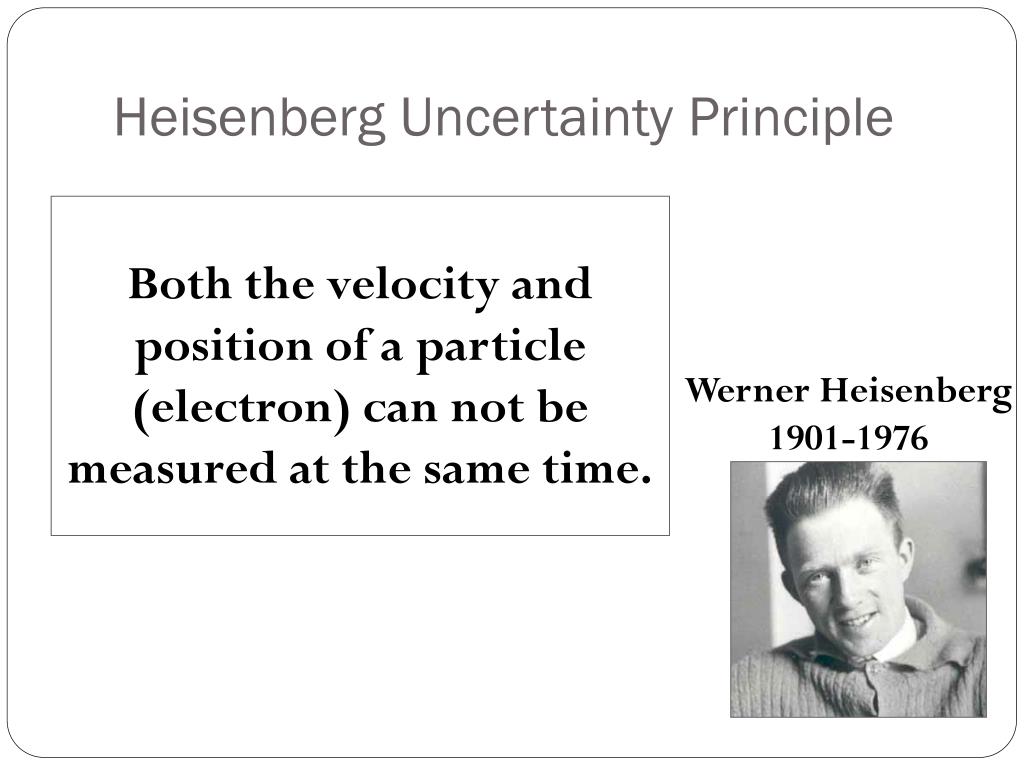
Also, the very act of observing a small particle changes its location or speed. For real world sized objects, you can get speed and location with a degree of accuracy an engineer would call good enough but for small particles you can't.
#HEISENBERG PRINCIPLE MOVIE MOVIE#
You don't get to do a picture and a movie at the same time - you only get one or the other. Or you can take a movie of the moving ball and from the movie you can tell how fast it is going but you can't tell exactly where it is. However, from the still picture, you cannot tell how fast it is going because there are no clues of time. You can take a picture of a moving golf ball and from that still picture you can tell exactly where it is. Ī real world level interpretation would be something like this. In practice, I think experimental error would also play a part, but short answer yes: the uncertainty principle allows you to relate the uncertainties of certain pairs of quantities.

As the other reply to my answer said, that could mean that if you did precisely determine the position of a particle, then you would have literally no idea of its momentum. But because of this relation, in principle yes, knowing the uncertainty in one measurement affects the uncertainty in another. This minimal uncertainty is only attained for very specific quantum systems - more often it's above this value. When you have a pair of observables that you can't measure at the same time, you can set a bound on the product of their uncertainties, usually as about the size of Planck's constant, which in SI units is around 6.6 x 10 -34 Joule seconds (or really, really tiny). Some of the other answers in this thread sort of touched on it, though. Really tricky to answer off the top of my head. What the HUP truly saids is that particles NEVER have simultaneously definite momentum (or velocity) and position, it is impossible in the framework of quantum mechanics for very fundamentally important reasons.įor example, a particle in a definite location (say at some x) will be equally likely to be found in all momentum values. While this explanation is good, I would like to add that it's not just that we cannot know what the values are, it is that such a particle with simultaneously definite momentum and position does not exist. The proof of the uncertainty principle assumes nothing at all about how we measure stuff, it's actually entirely based on the mathematics of hilbert spaces and the canonical commutation relations.įor example, you cannot know how fast a particle is moving horizontally at the same time as knowing where along the horizontal axis it is

It's actually entirely false, the heisenberg uncertainty principle has nothing at all to do with the imperfections of measurement.


 0 kommentar(er)
0 kommentar(er)
